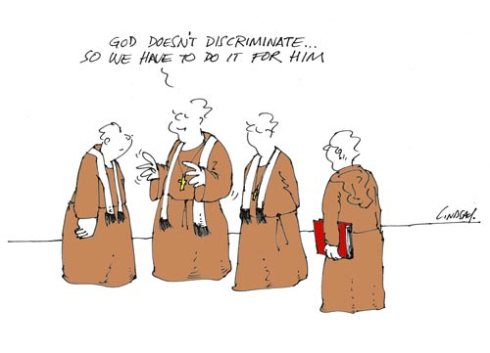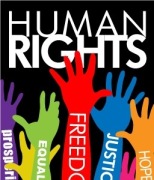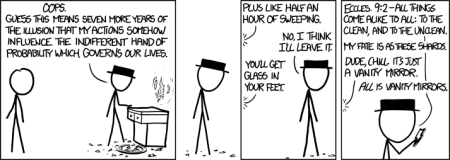Thanks to my brilliant friend Sam Blanch for contributing this post.
————————–
An intriguing little piece of political jargon has been continually assaulting my ears over the last few years: “certainty”. It has been an assault not only because of its appearance in ubiquitous soundbites, but also because it questions assumptions that I had made about Australian politics. It was Paul Kelly, The Australian’s editor-at-large, who had argued in his influential book The End of Certainty (1994) that “the old order is finished. There is no returning to past certitudes”. He had identified a fundamental consensus across the major political parties. The real story of the 1980s and 1990s was “the embrace by both sides of politics… of the free market agenda and its gradual application as the solution to Australia’s underlying problems”. This “new philosophy”, in short, meant that politics had been irrevocably changed by economic rationalism. Australian businesses and workers alike were now to be subject to the ever-increasing efficiencies, deregulations, flexibilities, and market-based mechanisms demanded by a competitive economy. Certainty was out of bounds.

But certainty is certainly back. Here are a few choice morsels of certainty and its cognates, from across the political and social divide and across political issues. I’m sure you’ll quickly get the picture:
- It creates much more uncertainty and really what we need to do is come to a resolution on this much sooner. (Martijn Wilder from law firm Baker and McKenzie, on debate over the carbon price)
- Power Australia with at least 90% renewable energy by 2030, by increasing the Renewable Energy Target. This will give investors the certainty and stability they need to plan. (Christine Milne on The Australian Greens’ “Clean Energy Roadmap)
- If there’s one thing business loves, it’s certainty. And now it’s got it. (ABC journalist Lexi Metherell, on reactions to Julia Gillard’s erstwhile announcement of an early election date)
- So in addition to us having legal limits on carbon pollution emissions each year between now and 2020, committed to an international process for a system beyond 2020, we’re also doing what the Opposition will not do, which is provide certainty to the renewable energy sector so we can continue to build solar power capacity and wind power capacity to start to take share away from more carbon polluting sources like coal power. (Kevin Rudd on climate change policy)
- I think the sooner they spell it out, the better for all of us. I think that people need certainty, especially when it comes to retirement incomes. (Tony Abbott on proposed changes to superannuation)
- We all know that because Labor has been using schools funding as a political wedge that there has been great uncertainty about what the outcome for schools next year is going to be. As far as I am concerned, as far as Christopher Pyne is concerned, as far as the Coalition is concerned, we want to end the uncertainty by guaranteeing that no school will be worse off over the forward estimates period. (Tony Abbott on school funding)
- We need certainty to plan for the future. We’re still waiting for clarity around funding. (Peter Elmore, Principal of St Thomas More College, Brisbane, on school funding changes)
Just try searching for “certainty” in the transcripts of any political leader, you will soon get sick of it. What explains the bombardment by this word “certainty” that we have all faced? Let me tentatively suggest a few things.
Firstly, certainty is an obviously useful word when comparing policy. And given the frequency of its use, certainty is probably a word identified by the ubiquitous focus groups that political parties make use of these days – “The carbon tax makes the future of my business uncertain”, “Tony Abbott’s character makes me feel uncertain about his leadership potential” – that sort of thing. Thus certainty becomes a useful political bludgeon, a tool of the political one-liner. But this is really just to defer the question. Why the prominence of certainty as a term and as an issue?
Well, secondly, it may suggest some ‘uncertainty’ about the economic rationalist consensus. Australians may be a little worried about the incessant focus on productivity gains through constant cost cutting and perennial political reform. Of course this might be just a practical demand for consistent rules in the economy. Thus certainty would partly act as a break on reform when it comes from business (changes to superannuation, for example, might deter investment by a business). But it has at least the potential to be an artefact of economic populism, a symbol of opposition to the constant change demanded by modern economics. Notice, though, that ‘certainty’ talk doesn’t actually offer a substantive alternative.
Instead, certainty’s third function may be to offer a convenient way to avoid substantive discussion. Certainty is raised with regard to change in circumstances or policies, but in itself it says nothing about the quality of a policy or circumstance. Like the very latest piece of electoral jargon (‘real solutions’, ‘positive plans’) it offers precisely nothing of use in any substantive consideration of carbon pricing, school funding, broad questions about the state of the budget, or anything of political substance. Paradoxically, this complete analytical uselessness when divorced from substantive argument may actually represent its very political usefulness. It offers a way to talk about economics without actually talking about economics. It enables pertinent questions, for example, about the redistribution of wealth throughout society, about the ownership and distribution of natural resources, and about appropriate levels of corporate taxation, to be effectively ignored. Like the political focus of people smugglers, it offers an agreed field upon which politicians can do battle on comfortable terms.
We could also discuss certainty/uncertainty in relation to the hung parliament, and the Byzantine affairs of the ALP. The former might reveal a national desire for easy answers and clear leadership rather than the perceived problems of the 43rd Parliament. The latter might lead us towards the ALP’s personality politics and obsessions with opinion polling. But let’s not go there…
Instead let me conclude with a few tentative observations. I suspect that the jargon of certainty/uncertainty indicates a lack of political consensus beneath current economic policy in Australia. At the very least, it reflects the current political class’s failure to articulate policy with any sort of philosophical or ideological rigour. Indeed, certainty seems to say little more than ‘we like making money and your political changes/lack of change potentially upset that’. And it is a term adopted across the political spectrum. In so in this vein, it also indicates what might be described as our pathological demand for a king or idol. As Willem H. Vanderburg puts it, it is modern society’s political beliefs and myths that “help cover over an abyss of relativism, nihilism, and anomie”. Perhaps then, the abyss threatens, and we crave certainty about what to put our faith in. While the economy remains the pantheon, we might be a little confused about the names and hierarchy of the new gods.
 The supporters of the two candidates – Glen Davies and Rick Smith – have embarked on social media publicity campaigns, commending their men like never before. There’s
The supporters of the two candidates – Glen Davies and Rick Smith – have embarked on social media publicity campaigns, commending their men like never before. There’s  Previously all this campaigning was relatively hidden from the public eye and people in pews like me. But thanks to social media it’s open campaigning now. What was previsouly whispered in secret is being proclaimed from rooftops, and it hasn’t all been pretty. The first instalment of ‘why rick?’ videos had me chuckling as a series of Anglican celebrities (they weren’t named, you’re meant to know who they are) offered only a couple of words of support before the camera cut to the next endorser, even mid-sentence (‘I think that Rick’ CUT ‘would be a’ CUT etc.). The effect was overwhelming – all these important people think Rick is great – though I couldn’t actually be sure why.
Previously all this campaigning was relatively hidden from the public eye and people in pews like me. But thanks to social media it’s open campaigning now. What was previsouly whispered in secret is being proclaimed from rooftops, and it hasn’t all been pretty. The first instalment of ‘why rick?’ videos had me chuckling as a series of Anglican celebrities (they weren’t named, you’re meant to know who they are) offered only a couple of words of support before the camera cut to the next endorser, even mid-sentence (‘I think that Rick’ CUT ‘would be a’ CUT etc.). The effect was overwhelming – all these important people think Rick is great – though I couldn’t actually be sure why. This means that in church politics there’s no place for factionalism, back-room deals, faceless men, political alliances, nepotism, jobs for the boys, branch stacking – these are weapons of power-politics, not of Christian humility.
This means that in church politics there’s no place for factionalism, back-room deals, faceless men, political alliances, nepotism, jobs for the boys, branch stacking – these are weapons of power-politics, not of Christian humility.
 The
The 
 The
The 

 Part 1 of 4
Part 1 of 4




